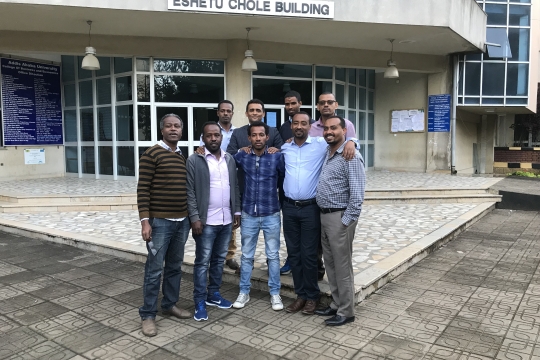Funding from The Swedish International Development Cooperation Agency (Sida) has been secured that will enable the Department of Economics at the School of Business, Economics and Law at Gothenburg University to support the PhD program in economics at Addis Ababa University, Ethiopia, for the coming five years. The program will be run jointly with Jönköping International Business School (JIBS).
We asked one of the key players in this project, Yonas Alem at the Department of Economics at Gothenburg University, some questions on this development.
In three sentences, what does the PhD-collaboration with Addis Ababa University entail?
The collaboration involves providing second year specialization courses in Development Economics and Environmental Economics. The PhD students also get co-supervision of the dissertation by colleagues from the department of Economics at the University of Gothenburg and the department of Economics at Addis Ababa University. It also provides post-doc and visiting scholar opportunities for colleagues at Addis Ababa University to come to Gothenburg and conduct collaborative research.
Why is this collaboration important?
The collaboration is important in order to improve the research culture and quality at Addis Ababa University and to improve internationalization of the University of Gothenburg.
What can the collaboration contribute with, in Ethiopia, Sweden and internationally?
The collaboration benefits both parties significantly. Addis Ababa University gets the opportunity to train its PhD students in collaboration with one of the most prestigious economics departments in the world. This will have a strong impact on the quality of its PhD graduates. The Department of Economics, University of Gothenburg also benefits from the collaboration by keeping its connection and collaboration with Academic institutions in Africa, important indicators of internationalization and diversity of an academic department. Moreover, colleagues who jointly supervise PhD students will likely produce joint peer-reviewed articles, which will improve the research output of both universities.
What are the long-term goals of the collaboration?
The short-term goals of the collaboration is training high-quality PhD graduates and co-production of research knowledge by both institutions. The long-term goals are improving the research culture and environment of Addis Ababa University, and contributing to the internationalization of both departments. The collaboration creates a platform for both parties to internationalize their research and education, learn more, and contribute to the economic transformation of a rapidly growing country – Ethiopia.
By: Katarina von Sydow
